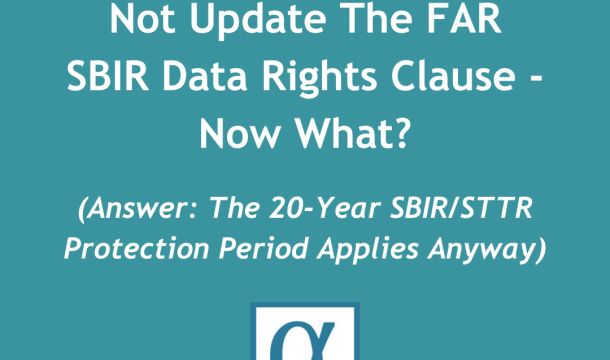The GovCon Bulletin™
Government Subcontractors: Avoid A Shut Out By Your Prime
Signs That Your Prime May Be Shutting You Out
Your company worked hard to establish a relationship with a prime contractor. It has already performed under one subcontract, and you and the prime contractor have successfully bid on another government contract. But you fear the prime contractor is shutting you out. And you didn't execute a teaming agreement to cover the most recent bid. In addition, your relationship with the prime contractor exhibits one or more of the following tell-tale signs that your company is being shut out of future work:
● The prime contractor never returns your calls to discuss the recently-awarded contract.
● Communications with the prime are dotted with vague but unsubstantiated suggestions that your company did not perform adequately in the past.
● The prime contractor refuses to meet or engage in detailed discussions about your company's work.
● The prime contractor has engaged in discussions with your key employees that cross over into recruiting expeditions.
Avoiding The Shut Out
There are five precautions that a subcontractor can take to minimize the chance that it will be shut out by a prime contractor on the next contract.
1. Have a Teaming Agreement in Place For Each of Your Bids
The teaming agreement should have enforceable exclusivity provisions that ensure your company will get work on any contract that it bids on with the prime contractor. The agreement should also cover future enhancements or task orders. If your company and the prime contractor bid on additional contracts, either the existing teaming agreement should cover those contracts or you should enter into a new teaming agreement with the prime contractor.
2. Protect Your Intellectual Property And Proprietary Information
Aside from obtaining appropriate patents and copyrights, your company should have agreements with the prime contractor that prevent disclosures of proprietary information to third parties. In addition, your agreements should clearly allocate rights among your company and the prime contractor to data and software.
3. Use Employee Non-Solicitation Clauses
Your teaming agreement and any subcontracting agreement should contain provisions that prevent the prime contractor from recruiting your employees during the bidding process and before, during, and after any contract is awarded.
4. Keep Channels of Communication Open With the Agency or Contracting Officer
Avoid contract provisions that prevent your company from communicating with the agency or contracting officer during the contract performance period. You may be able to dispel vague complaints from the prime about the quality of your company's work by talking directly to the agency or contracting officer.
5. Be Familiar With Rules That May Prevent the Prime From Dropping a Subcontractor
In some instances, a prime contractor cannot simply walk away from a subcontractor after it has been awarded a contract. For example, under the Small Business Jobs Act of 2010, in contracts requiring a subcontracting plan, a prime contractor must make a good faith effort to use the subcontractor identified in the proposal and provide a written explanation to the contracting officer if there is a change in how the proposed subcontracted work will be performed.



